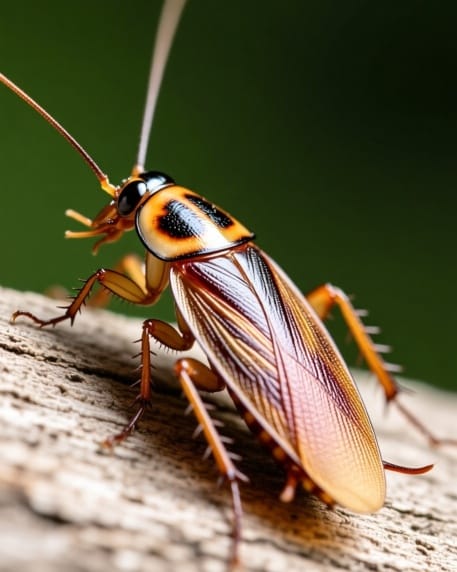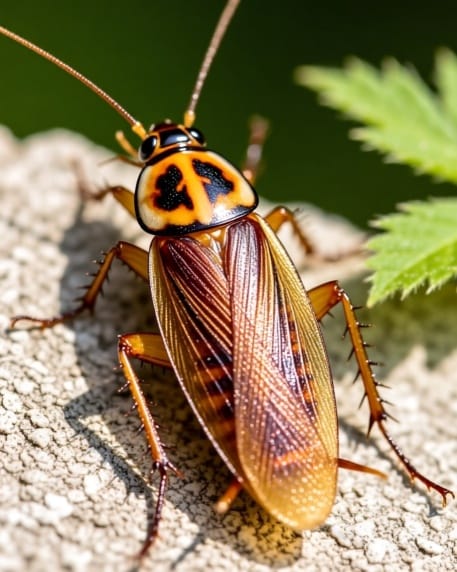What to Do If You See Cockroaches in Your Kitchen – London Pest Guide
What to Do If You See Cockroaches in Your Kitchen
Identify the problem quickly – spotting one cockroach often means many more are hiding nearby.
Clean and remove food sources – wipe surfaces, seal food, and empty bins daily.
Block entry points – seal cracks, gaps, and leaks to stop cockroaches returning.
Call professional pest control London – only experts can fully eliminate cockroach infestations.
Find pest controller near you
What to Do If You See Cockroaches in Kitchen



Few things are more alarming than spotting a cockroach crawling across your kitchen floor or scuttling behind the fridge. Known for being one of the world’s most resilient pests, cockroaches in London are becoming increasingly common due to the city’s dense housing, restaurants, and warm indoor environments.
If you’ve just seen one, don’t panic — but don’t ignore it either. Where there’s one, there are usually many more hiding nearby. In this guide, we’ll explain what to do if you see cockroaches in your kitchen, how to prevent infestations, and when to call the experts at Panther Pest Control London.
Why Are Cockroaches a Serious Problem?
Unlike some pests that are just a nuisance, cockroaches are a genuine health hazard. They carry bacteria and pathogens that can cause:
Food contamination leading to food poisoning.
Allergies and asthma from their droppings and shed skin.
Unpleasant odours caused by cockroach secretions.
Rapid infestations – a single female can produce hundreds of offspring.
Cockroaches are mostly nocturnal, so if you’ve seen one during the day, it could be a sign of a severe infestation.
Step 1 – Stay Calm but Act Fast
If you’ve spotted a cockroach in your kitchen:
Do not squash it on food surfaces – this can spread germs.
Try to identify it – common species in the UK include the German Cockroach and the Oriental Cockroach.
Check nearby areas – look behind appliances, under the sink, and in dark corners for more activity.
Step 2 – Clean Thoroughly
Cockroaches thrive where there is food, water, and shelter. Reduce their chances of survival by:
Wiping down kitchen surfaces after every meal.
Storing food in sealed containers.
Washing dishes immediately – don’t leave dirty plates overnight.
Emptying rubbish bins regularly and using lids.
Sweeping and vacuuming crumbs from floors and skirting boards.
Step 3 – Block Their Entry Points
Cockroaches are expert invaders, squeezing through even the tiniest cracks. To stop them entering:
Seal gaps around pipes, drains, and skirting boards.
Fit door sweeps on kitchen doors.
Check windows and vents for cracks or gaps.
Store cardboard and paper properly – roaches love to hide in clutter.
Step 4 – Avoid DIY Cockroach Sprays
Many people rush to buy supermarket sprays when they see cockroaches. While these might kill one or two on sight, they rarely deal with the hidden infestation. Cockroaches are highly resilient and can survive common household chemicals.
Worse, DIY treatments may drive them deeper into walls and harder-to-reach places, making the infestation spread further. For long-term success, professional pest control in London is the most reliable solution.
Step 5 – Look for Signs of a Bigger Infestation
Even if you only saw one cockroach, you should still check for signs of more:
Droppings – tiny black specs, similar to coffee grounds.
Egg cases (oothecae) – brown capsules often found in cupboards or behind appliances.
Shed skins – cockroaches shed multiple times as they grow.
Musty smell – strong, unpleasant odour in infested areas.



When to Call Professional Pest Control
If you see even a single cockroach in your kitchen, the safest step is to call Panther Pest Control London. Our experts provide:
Cockroach identification – pinpointing the species and infestation level.
Safe, targeted treatments – using professional-grade gels, baits, and insecticides.
Long-term prevention advice – so cockroaches don’t return.
Discreet service across London and the M25.
Cockroach infestations don’t go away on their own. The sooner you take action, the easier it is to eliminate them.
Tips to Prevent Future Cockroach Problems
Once your home is clear, prevention is key. Follow these tips to keep your kitchen cockroach-free:
Keep your kitchen dry and clean – cockroaches are attracted to moisture.
Fix leaky taps, pipes, or condensation problems.
Store pet food away at night.
Avoid clutter – fewer hiding spots mean fewer cockroaches.
Schedule regular pest inspections if you live in a high-risk area of London.
Cockroach Infestations in London – Why They’re Rising
London has seen a sharp rise in cockroach infestations due to:
Warmer winters allowing cockroaches to survive longer.
High population density providing abundant food waste.
Travel and imports – cockroaches often arrive in luggage, packaging, or deliveries.
Shared housing – once in a block of flats, cockroaches can spread rapidly.
The Bottom Line
If you’ve seen a cockroach in your kitchen, don’t ignore it. One sighting often means many more are lurking nearby. Immediate cleaning and proofing may help temporarily, but only professional pest control in London guarantees complete eradication.
At Panther Pest Control, we provide fast, discreet, and effective cockroach removal services across London and the M25. Whether it’s your home, restaurant, or business, we’ll protect your property from these resilient pests.
Contact Panther Pest Control London today and let our experts restore your kitchen to a safe, hygienic, and pest-free space.

Al Joel is a practical writer and long-term property maintenance specialist who focuses on real-world pest control, home safety, and prevention advice. His blog posts are written in a clear, no-nonsense style, based on hands-on experience rather than theory. Al’s goal is simple: to help homeowners make safe, informed decisions and know when DIY is reasonable and when professional help is the smarter option.
